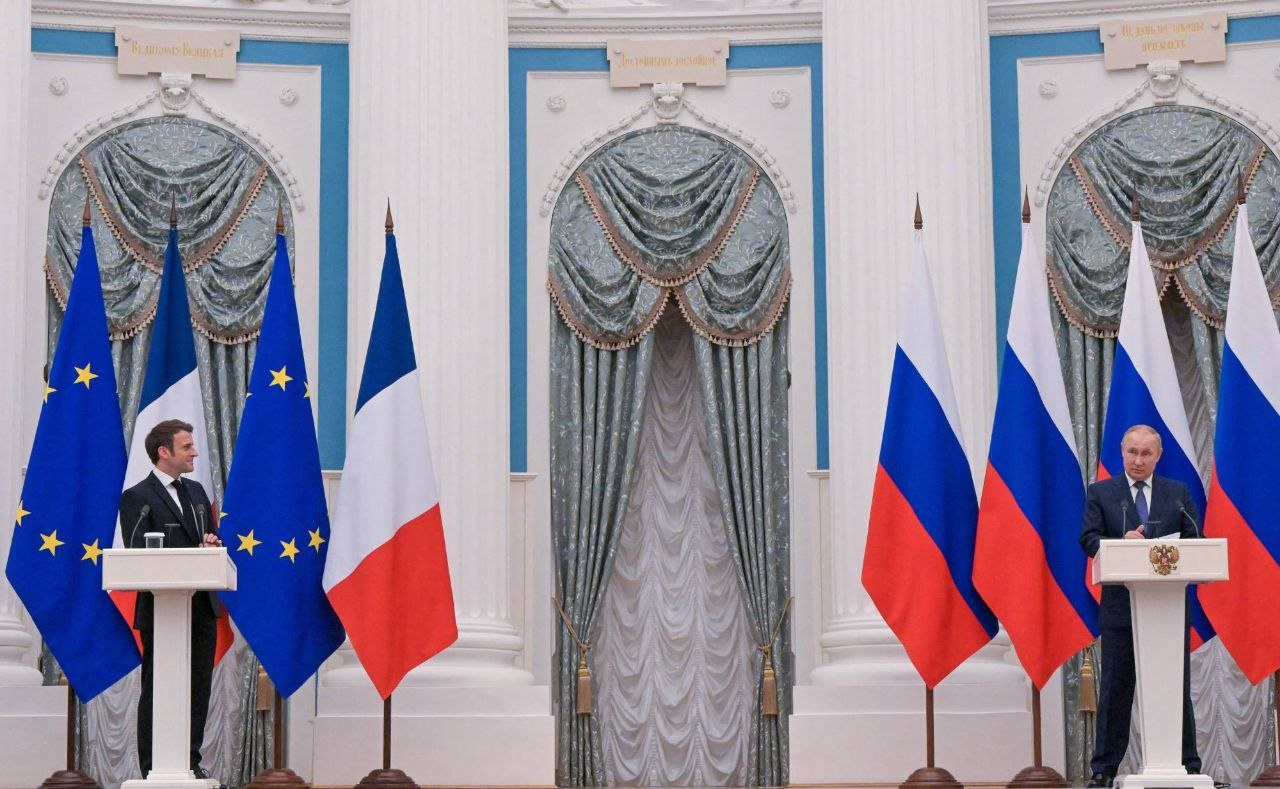Speaking in an interview with the website of the Strategic Council on Foreign Relations, Morteza Makki said: Following meetings between officials from Russia, Ukraine, Germany and France within the framework of the Normandy Group, French President Emmanuel Macron and German Chancellor Olaf Scholz are trying to reach a higher level of consultations to reduce tensions and crises in Ukraine.
According to the expert, on the one hand, Emmanuel Macron went to Moscow and Kiev, and on the other hand, Scholz went to Washington.
Stressing that Macron’s trip to Russia and Ukraine has attracted the attention of political and media circles most due to the sensitivities regarding European-Russian relations, he further elaborated: Now everyone is waiting to see what this trip has achieved in reducing the tension in the Ukrainian crisis. The French president after two years returned to Moscow to hold direct talks with Putin and to manage the Ukraine crisis as well.
According to the expert on Europe affairs, this trip is important because there is a deep disagreement between France and Germany with the aggressive view of the United States in the face of Russia’s military line up on the borders of Ukraine.
Regarding the possibility of military tension between Russia and Ukraine and the subsequent intervention of Western countries, he said: After the increase in the Russian military presence on the borders with Ukraine, neither the United States nor European governments threatened Russia with a military response in the event of an attack on Ukraine; because the consequences of a military threat are so far-reaching and profound that they will be unpredictable and uncontrollable.
Makki noted: Those threats were mostly about economic issues and the personalities of the Moscow government, and militarily only the United States and some European governments, such as Britain, are trying to equip the Ukrainian government with new weapons and military equipment.
Regarding Moscow’s reaction to the US-British move, the international affairs expert said: This move further provoked Russia to strengthen its position regarding the policies of Western governments.
Noting that France and Germany had tried to refrain from sending military equipment to Ukraine in order not to escalate tensions in their relations with Russia, he stressed: This policy of the Berlin government has been strongly criticized by Kiev and for several times, the German ambassador to Ukraine was summoned and even the commander of the German navy was forced to resign due to his critical stance against the Ukrainian government.
The expert continued by emphasizing that there is no question of comparing Russia’s military might with that of European or American governments, saying: Because, Russia is perhaps the world’s largest military power after the United States in terms of the amount of weapons and equipment at its disposal; it also has the second largest nuclear arsenal in the world.
Makki also explained that European governments, led by France and Germany, believe that they should resolve the Ukraine crisis through dialogue and expanding relations with Russia, and that expanding relations with Moscow at all levels in the long run could reform the Russian government’s policies toward its sphere of influence from within. They are strongly opposed to military formations against Russia like the Cold War era.
The researcher on Europe and Russia affairs explained that after the annexation of Crimea to Russia, the Europeans tried to react to the policy of the Russian government by imposing a series of economic sanctions, which have not been ineffective in the Russian economy.
He added: The devaluation of the ruble over the past few years has been the result of economic sanctions imposed on the Moscow government; however, over the past few years, the Russian government has sought to find alternatives to meet its import needs from European countries by expanding relations with some other countries. But in today’s world, governments strongly believe in using the soft power to advance their foreign and security policy, and economic sanctions are one of them.
Stressing that Russia and the European Union are interdependent, Makki said: About 18 European countries get all their oil and gas from Russia, which is the Europe’s Achilles heel before Russia. However, Russia is also heavily dependent on those exports, and about 60 percent of Russia’s foreign exchange reserves come from oil and gas exports to Europe. That is why the Russians cannot maneuver much on the tool of cutting-off gas to Europe.
In conclusion, he emphasized: The Russian government is now trying to force the European and American governments to stop NATO from expanding into Russian spheres of influence in the former Soviet republics, especially Ukraine, with the most important component at its disposal, that is to say military capability. Moscow, in fact, wants Ukraine to remain a separation line between Russia and NATO.










0 Comments